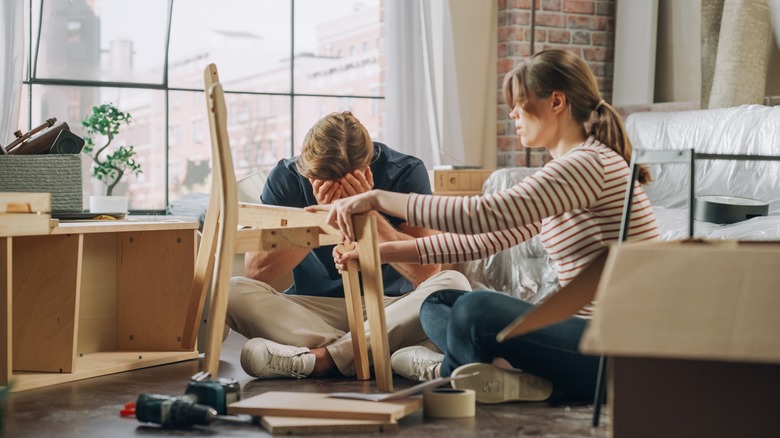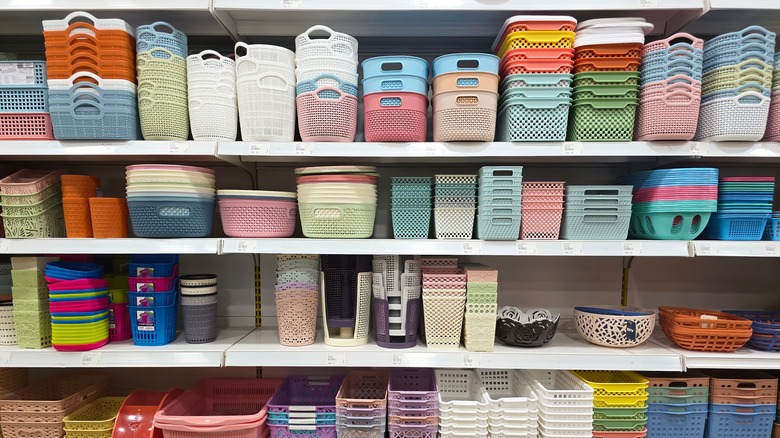The Home Decor That People Are Avoiding (And Why You Should Too)
Are you having a hard time cutting the clutter? Anxious about your environmental impact? As the home decor market balloons to nearly $800 billion, it's hard to escape the endless interior design must-haves that spring up overnight on social media. From boucle to brat green, many viral sensations look better in your feed than in your family room. Because trendy home decor items are often low quality and lack durability, they contribute to a throwaway culture where everything from pillows to patio tables end up as landfill waste that can take decades to decompose. Fast furniture can negatively affect your home's aesthetic, and it's among the items you would never catch professionals buying.
"Simply put, the stuff doesn't function as it should or as long as it should," the founder of Couch.com, Alex Back told James & James. The furniture expert recommends avoiding low-quality home decor that can cause serious problems, from collapsing chairs that cause injuries to "cheap fast furniture costing more than a higher-quality alternative after you've replaced it for the third time."
Cost is a major consideration when it comes to any furniture purchase, and significantly lower prices are driving the popularity of fast furniture. These savings come at a high cost to laborers, who are often paid unfair wages and forced to work long hours in hazardous conditions to build flat-packed furniture sold by popular brands like IKEA. Consider investing in real wood instead. If you're on a budget, thrift stores and Etsy are among the best places to shop for vintage furniture.
Avoid excessive clutter by choosing functional home decor
Along with forgoing fast furniture, organizing experts recommend avoiding excessive decor. When you want to update a room, along with investing in quality over quantity, choose items that are practical instead of just decorative. Don't overdo it. While a few unique pieces that have sentimental meaning can personalize a space, tossing cheap items into your shopping cart every time a new trend hits the shelves can quickly lead to a chaotic mess at home.
If you're wondering how to finally deal with overwhelming clutter, it might be tempting to invest in several plastic bins, baskets, and other specialized storage solutions. Like flat-packed furniture, plastics often contain volatile organic compounds (VOCs) that are harmful to both the environment and your health. Experts recommend resisting the urge to buy a bunch of baskets until you know exactly what you want to keep and how you need to organize it. "Buying those items is fun and makes you feel like you're making progress," professional organizer Jen Weintraub said in her exclusive interview with House Digest. "Without decluttering first, you can waste time and money buying the wrong organizing products." Once you're ready to invest in storage solutions, opt for metal, wood, or bamboo materials that will stand the test of time.
Getting rid of unwanted home decor items doesn't have to be a challenge. Instead of tossing that outdated pillow or dusty macramé wall hanging straight into the garbage can, consider donating, upcycling, or gifting it instead.

